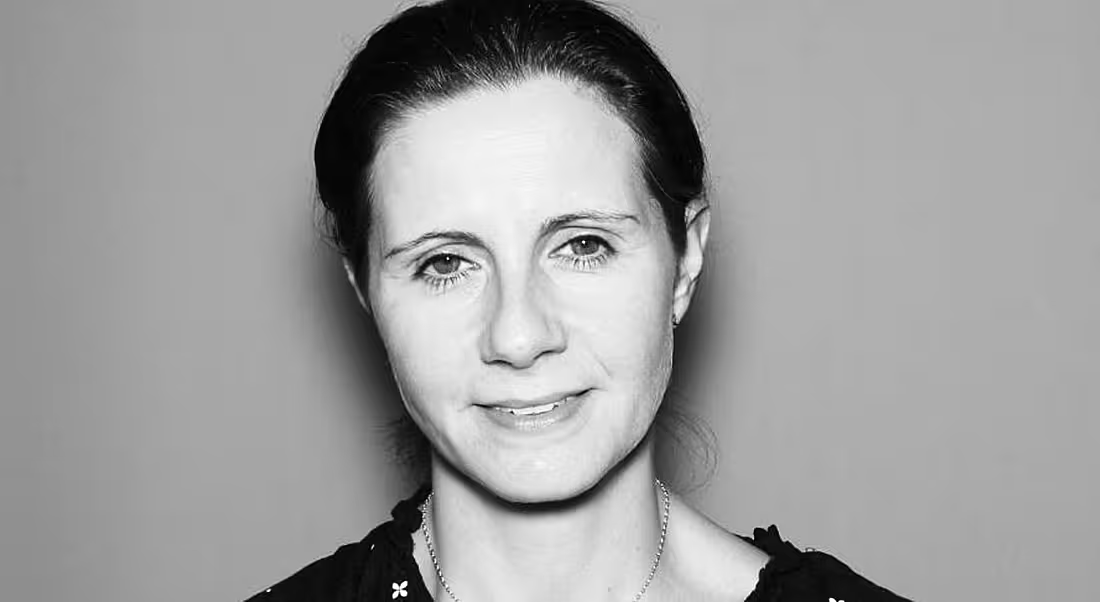Mastercard’s Olivia Leonard reflects on her career in tech and how we can bring more women into this field.
As Mastercard’s senior vice-president of enterprise architecture, Olivia Leonard leads a global engineering team and is tasked with “internalising” new technologies to help the company scale and innovate. And her experience of overseeing technology professionals has given her plenty of insight into what makes for a talented team as well as the gaps that need filling.
An obvious one is the lack of women in technology and engineering. CSO statistics from 2017 show the proportion of men and women studying natural sciences, maths and statistics at third level is relatively equal (7.4pc of women versus 8.5pc of men).
But when it comes to information and communication technologies, the gap is much wider (2.5pc of women versus 10.4pc of men). For engineering, manufacturing and construction, it widens to 3.6pc of women versus 17.8pc of men.
“I think there is a message in that data,” Leonard says. “Female students who are studying STEM subjects are far more likely to explore the natural sciences than technology and engineering.
“Therefore, women are underrepresented in the technology sector, which is seeing sustained and projected growth in Ireland. So, I would say this presents an excellent opportunity for young women to pivot towards careers in this exciting area.”
Reflecting on a career in technology
Leonard’s own experiences as a woman in tech have been positive. She has had a “rewarding and interesting” career so far, she says, working across various sectors in diverse roles.
“Every time you take on a new role, it’s a challenge,” she says. “You wonder, ‘Can I do this?’ I think what has helped me and encouraged my growth is the support of my managers and mentors throughout my career. There have always been people who believed in me and encouraged me to believe in myself, to take on the next challenge.”
‘We need a few catalysts to translate possibility into reality’
– OLIVIA LEONARD
But self-motivation has also been key. One of the most important things Leonard has learned is how essential it is to keep learning. “The culture of continuous learning permeates the technology sector. To me, that is one of the most rewarding aspects of my job.
“A career in technology isn’t just about technology, either. It’s about people, collaborating on solutions, working as a team to solve problems under pressure and learning from one another. You get a great insight into people and team dynamics.”
The barriers to bringing more women into tech
Leonard is hopeful for the future of women in tech. She believes the educational system we have in Ireland can “actively build the STEM pipeline”, while more employers are committing to diversity and inclusion initiatives.
“In my view, we need a few catalysts to translate possibility into reality,” she says. “One frequently cited challenge in getting girls to pursue careers in technology and engineering is that there is a bias in society that these careers are more attractive for men. We need a more active partnership between industry and education to start eroding that bias.”
She would love to see the Department of Education and industry join forces on transition-year placement programmes that could give school students “a real experience” of working in STEM. This could also give them access to role models.
“That level of engagement might be more likely to encourage those students to study subjects equipping them to follow STEM courses at third level,” she explains. But it’s not just about getting more women to study STEM. Sustaining women in science and tech-related fields is also crucial.
“I think the key to that is offering flexibility, both in terms of roles and ways of working,” Leonard continues. “Providing opportunities to work part-time, work flexible hours and work remotely can all support women over the long journey of their careers.”
What we need to do
We also must remember that diversity is good for business as it brings different perspectives to the table. But Leonard says we can’t simply “sit back and wait for that to happen”.
Taking action can involve mentorship programmes with schools and colleges. Mastercard’s Girls4Tech programme teaches primary-school girls about careers in STEM through activities and encouraging discussions with their parents at home. Mastercard also runs the Relaunch Your Career programme to help women re-entering the workforce after a career break.
“I think clubs like CoderDojo and events such as Coolest Projects and the BT Young Scientist Exhibition are excellent ways to encourage girls to actively engage with STEM subjects,” Leonard says. “Teachers and parents are vital to nurturing curiosity in children, which is hugely important to developing their interest in STEM subjects. So, supporting teachers and parents with the right resources can make a difference to the future of STEM in Ireland.”
Leonard’s advice for other women hoping to pursue a career in STEM is rooted in her own journey.
“I’d start by saying I feel very fortunate that I followed this path,” she says. “It was down to the encouragement of some teachers and lecturers that I found my way into this career. It has provided me with so much opportunity – to travel, to learn, to work autonomously and to lead teams, but mostly to work with really brilliant and creative people.
“My advice to anyone who wants to break into a STEM field is to try things that will lead you to your goals, assume you can do it and remember there are plenty of people who will help you. Believe in yourself. There are many options and possibilities in the world of STEM. You can use your talents in so many different ways. Embrace the opportunities.”




